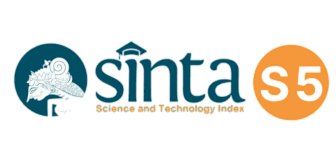Problematika netralitas Polri di era Jokowi: Keterlibatan dalam politik praktis dan bisnis
Downloads
This article describes the problems of democratization that occurred in the reform era, namely the involvement of the National Police in practical politics and business. After the issuance of Presidential Instruction No. 2 of 1999 by B.J Habibie who stated that the National Police were separated from the Armed Forces, the National Police Chief was directly responsible to the President of the Republic of Indonesia through the National Police Law no. 2 of 2002. The law was issued as an effort to democratize post-reform, aimed at creating a professional security tool by prioritizing neutrality that does not involve oneself in practical politics and business. However, there are differences in the implementation of the Police Law. Along with the increase in its budget, the Police are actually involved in sectors that are not under their authority. During the Jokowi administration, this involvement was demonstrated by the distribution of 18 high-ranking officers in the ministry, 7 in non-ministerial institutions, 4 in BUMN, 2 in ambassadorial positions, and 2 in independent associations. This article was compiled through a literature study using secondary data to understand the causes of Polri's involvement in practical political and business activities. The argument of this article shows that the problem of democratization regarding the involvement of the National Police in practical politics and business by holding concurrent positions outside the corridor of security and order is caused by the interests of the authorities, which is a form of reward for President Jokowi's victory in the 2019 presidential election.
Copyright (c) 2022 Jurnal Politik indonesia (Indonesian Journal of Politics)

This work is licensed under a Creative Commons Attribution-NonCommercial-ShareAlike 4.0 International License.
- Copyright of this journal is possession of Editorial Board and Journal Manager, by the knowledge of the author, while the moral right of the publication belongs to the author.
- The formal legal aspect of journal publication accessibility refers to Creative Commons Atribusi-Non Commercial-Share Alike (CC BY-NC-SA), implies that publication can be used for non-commercial purposes in its original form (cannot be modified).
- Every publication (printed/electronic) are open access for educational purposes, research, and library. Other than the aims mentioned above, the editorial board is not responsible for copyright violation.












